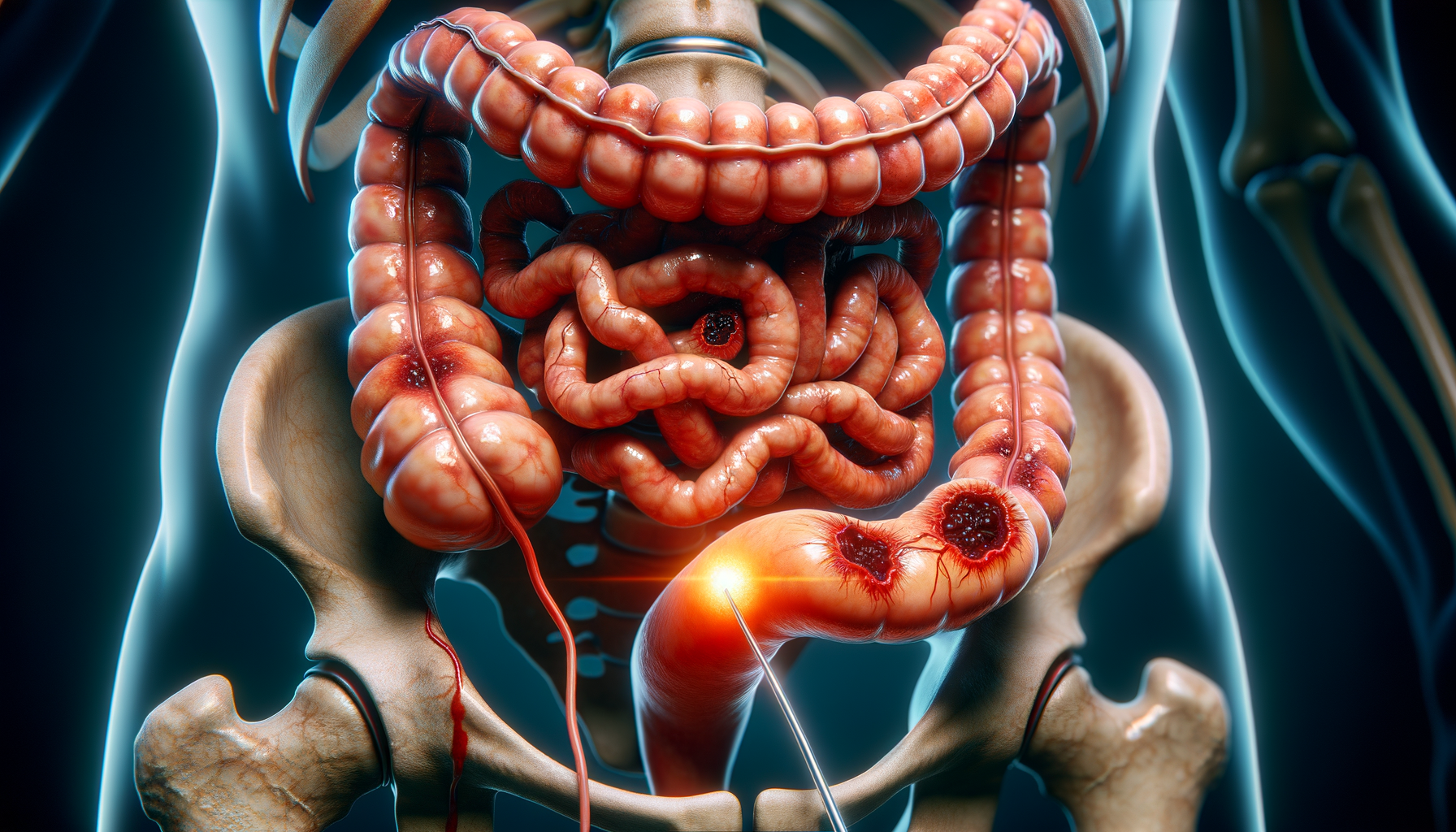Understanding Colon Cancer
Colon cancer, also known as colorectal cancer, is a type of cancer that begins in the large intestine (colon) or the rectum. It is one of the most common types of cancer affecting both men and women worldwide. Understanding the nature of colon cancer is crucial for early detection and effective treatment. The colon is a vital part of the digestive system, responsible for absorbing water and nutrients from food and storing waste before it is expelled from the body. When cancer develops in this area, it can disrupt these functions and lead to serious health complications.
Colon cancer typically starts as small, noncancerous (benign) clumps of cells called polyps that form on the inside of the colon. Over time, some of these polyps can become cancerous. Identifying these polyps early through screening can help prevent the development of cancer. Therefore, regular screening is recommended for adults aged 50 and older, or earlier for those with a family history of the disease.
There are several risk factors associated with colon cancer, including age, a personal or family history of colorectal cancer or polyps, inflammatory intestinal conditions, a low-fiber, high-fat diet, a sedentary lifestyle, diabetes, obesity, smoking, and alcohol. While some of these factors are non-modifiable, lifestyle changes can reduce the risk. By understanding these risk factors, individuals can make informed decisions about their health and screening practices.
Recognizing the Early Signs
Recognizing early signs of colon cancer can significantly improve outcomes through timely diagnosis and treatment. Early detection is key because symptoms often do not appear until the cancer has progressed. However, there are some warning signs that should prompt further investigation.
Common early symptoms of colon cancer include:
- Changes in bowel habits, such as diarrhea or constipation, lasting more than a few days
- A feeling that the bowel does not empty completely
- Rectal bleeding or blood in the stool
- Persistent abdominal discomfort, such as cramps, gas, or pain
- Weakness or fatigue
- Unexplained weight loss
These symptoms can also be caused by other conditions, such as hemorrhoids or irritable bowel syndrome, which is why it is important to consult a healthcare professional for an accurate diagnosis. If you experience any of these symptoms, especially if they persist, it is crucial to seek medical advice promptly.
The Importance of Screening
Screening plays a pivotal role in the early detection and prevention of colon cancer. It is a proactive measure that can identify polyps before they develop into cancer. Several screening tests are available, each with its own advantages and limitations.
The most common screening tests include:
- Colonoscopy: A comprehensive examination that allows doctors to view the entire colon and rectum to detect and remove polyps.
- Stool tests: These tests, such as the fecal immunochemical test (FIT) or guaiac-based fecal occult blood test (gFOBT), check for hidden blood in the stool, which can be an early sign of cancer.
- Flexible sigmoidoscopy: Similar to a colonoscopy, but only examines the lower part of the colon.
- CT colonography (virtual colonoscopy): A non-invasive test that uses CT scanning to examine the colon.
Each test has its own schedule and frequency recommendations, which should be discussed with a healthcare provider. Regular screening is recommended for individuals aged 50 and over, but those with higher risks may need to start earlier. By adhering to screening guidelines, individuals can significantly reduce their risk of developing colon cancer.
Treatment Options for Colon Cancer
Treatment for colon cancer depends on several factors, including the stage of the cancer, the patient’s overall health, and personal preferences. The main treatment options include surgery, radiation therapy, chemotherapy, and targeted therapy.
Surgery is often the primary treatment for early-stage colon cancer and involves removing the cancerous section of the colon. In some cases, minimally invasive techniques such as laparoscopic surgery may be used, which can result in quicker recovery times.
For more advanced stages, chemotherapy may be recommended to kill cancer cells or shrink tumors before surgery. Radiation therapy, often used in conjunction with chemotherapy, targets cancer cells with high-energy rays. Targeted therapy is a newer option that focuses on specific abnormalities in cancer cells, often with fewer side effects than traditional chemotherapy.
The choice of treatment is a collaborative decision between the patient and their healthcare team, taking into consideration the potential benefits and side effects. Advances in medical technology and personalized medicine continue to improve treatment outcomes for colon cancer patients.
Prevention and Lifestyle Changes
While some risk factors for colon cancer cannot be changed, adopting a healthy lifestyle can help reduce the risk. Making informed lifestyle choices is a proactive way to prevent not only colon cancer but also other health conditions.
Here are some preventive measures:
- Maintain a healthy weight: Obesity is a known risk factor for colon cancer. Regular physical activity and a balanced diet can help manage weight.
- Eat a diet rich in fruits, vegetables, and whole grains: A diet high in fiber and low in fat is associated with a lower risk of colon cancer.
- Limit alcohol consumption and avoid tobacco: Both smoking and excessive alcohol intake are linked to increased cancer risk.
- Stay physically active: Regular exercise can help maintain a healthy weight and reduce the risk of colon cancer.
In addition to lifestyle changes, it’s important to follow recommended screening guidelines and consult healthcare professionals for personalized advice. By taking these steps, individuals can take control of their health and reduce their risk of colon cancer.




Leave a Reply